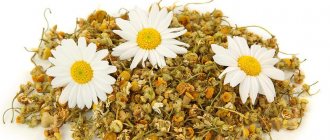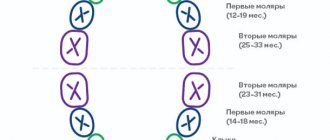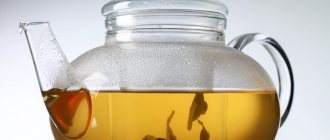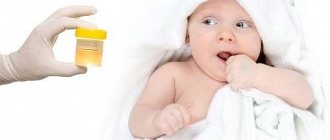At what age can you drink chamomile?
Scientific medicine strictly regulates the use of chamomile infusion by young children. In particular, according to the recommendations of doctors, children under one year of age can only use bathing with a medicinal plant and instill the infusion into the nose for a runny nose.
Important! The problem is that the decoction can cause allergic reactions and contribute to the leaching of iron.
After reaching three years of age, chamomile can be used internally in the form of a weak tea or an unsaturated decoction. It helps cough up and provides a diaphoretic effect.
Side effects of chamomile tea
Although chamomile herb has been used for many years and is completely safe in many places around the world, there are some aspects to pay attention to.
The overly calming effect of chamomile
- The calming nature of chamomile may be harmful to people with low blood pressure, causing weakness.
While chamomile tea is a natural sedative, it should not be taken while driving. Chamomile tea can cause drowsiness and can be dangerous when you need to be alert.
Too much chamomile in herbal tea is not always beneficial
- Some people may develop tolerance to the sedative properties of chamomile. Drinking too much chamomile tea can be harmful to your stomach. If you exceed the recommended daily dose, you may experience nausea and even vomiting.
If you have sensitive skin, you may experience skin reactions and allergies. Especially if you drink too much chamomile tea. This is very rare, but if you have any symptoms, you should stop drinking this tea.
Chamomile tea and pregnancy
It may be tempting to drink a chamomile infusion when you're pregnant to help combat nausea. However, too much tincture can shrink the uterus and cause miscarriage.
It is best to consult your doctor to get a recommendation and the correct dosage for your specific case.
Allergies and drug interactions
- If you are allergic to plants such as ragweed or chrysanthemum, if you suffer from asthma or suffer from pollen allergies, then it is best not to drink chamomile tea.
- If you have trouble breathing or swallowing, cramps, or general pain, stop drinking chamomile tea immediately and see a doctor to be tested for allergies.
Chamomile herbal tea may interact with a drug you are taking. Therefore, try not to drink chamomile tea if you are taking blood thinner medications or taking medications for epilepsy. The effects of the medicine may be increased beyond safe levels.
Beneficial features
Pharmaceutical chamomile has many beneficial properties. It helps fight seasonal colds and eliminates inflammatory processes. The main properties of the plant include:
- providing an anti-inflammatory effect;
- relieving nervous tension and excitement;
- eliminating signs of insomnia;
- normalization of the functioning of the gastrointestinal tract;
- eliminating the formation of gases in the intestines;
- fight against pathogenic microbes, bacteria and viruses;
- strengthening the immune system;
- removal of stones from bile ducts;
- relieves pain in stomach diseases, such as gastritis.
For infants, the herb is especially useful during the period of stomach colic. The product gently soothes the baby and allows him to rest normally.
Benefits of Chamomile Tea
Let's consider all the benefits for children under one year old point by point:
- Studies have shown that chamomile tea helps control colic in newborns, even chronic ones.
- Chamomile is a natural relaxant and can be useful in cases where a child has disrupted sleep patterns
- various compounds relax the digestive tract, thereby promoting digestion and preventing the production of gas
- There is a faster improvement in health during colds, and reduced inflammation of the upper respiratory tract thanks to antioxidants
- the infusion may be useful when a baby suffers from an inflammatory skin condition such as sunburn or diaper rash, or when gums become sore during teething
- may reduce the intensity of some gastrointestinal conditions such as irritable bowel syndrome and gastroesophageal reflux.
Please note that there is not enough research on the benefits of chamomile for adults, let alone children, so again, follow the advice of your pediatrician.
Using chamomile for colds
If the baby’s mother sees that the child has become lethargic and the first signs of a cold have begun to appear, you can inhale with chamomile decoction, rinse the nose, or give tea based on a medicinal plant to drink.
Important! The plant has an anti-inflammatory and antibacterial effect, and in the early stages it can cope with many diseases. Or make their flow much easier.
Inhalations with the plant are not used until acute inflammation is relieved with medications. Otherwise, the procedure can only cause harm. Foot baths have also been found to be useless.
Preparing the decoction
For children under one year of age, a very weak decoction is made, since strong tea may contain dangerous substances. From the age of 5 you can safely take the decoction, but you need to prepare it. Keeping children's proportions:
- dried chamomile flowers – 1 – 1.5 tsp;
- boiling water – 300 ml.
You need to mix the ingredients and simmer for about 40 minutes in a water bath. Then the composition is filtered and left for about half an hour.
How to brew correctly?
You can brew chamomile in different ways:
- for oral administration . Take 1 tsp. dry inflorescences, pour 1 glass of hot water, cover with a lid and a towel, leave for 15 minutes. To make the tea tastier, you can add a little sugar or honey to it before drinking. The main thing is to make sure that the child is not allergic to bee products;
- for baths . Put 3 tbsp. l. chamomile into an enamel pan, pour 1 liter of boiling water and put on fire. When the liquid boils, remove the pan from the stove and cover with a lid. After half an hour, strain the broth and dilute it in 10 liters of water;
- for rinsing the mouth or treating mucous membranes . Take 3 tsp. chamomile, pour 200 ml of boiling water, leave for 15-30 minutes, strain and cool.
Regular use of chamomile tea requires the prescription of vitamins containing iron (this is especially true for children with microelement deficiency).
Swimming in daisies
A well-known way to calm a baby, make him calmer and more balanced. The decoction will also help heal wounds and eczema on the body, soothe the skin and provide hydration.
Important! You should not use bathing with a decoction if there are contraindications or a tendency to allergies. You should also not use the medicinal plant in combination with infusions of other herbs.
In general, chamomile is a very useful and effective way to cope with many diseases, including in children.
ATTENTION!
The information on the site is for informational purposes only and does not call for action. Remember, self-medication can harm your health. Before using medicinal herbs, consult your doctor.
Age restrictions and contraindications
There is no age limit for chamomile tea, but proportions must be observed.
Tea made from chamomile flowers is healthy and recommended for use by adults and children from the first month of life. Therefore, there are no age restrictions as such. The only condition is compliance with the proportions and brewing technology. You must act in strict accordance with the instructions, and also make sure that there is no individual intolerance to this drug.
Chamomile infusion is prescribed as a preventative and therapeutic agent. For infants, you need to pay special attention to the preparation process and follow the instructions given by the pediatrician.
Beneficial properties of chamomile
Chamomile is often used in pediatrics. The beneficial properties of the herbal product are due to the following unique composition:
- Vitamin C is widely known as a substance that strengthens the immune system.
- Apple pectin improves intestinal motility and helps fight constipation.
- Flavonoids have an anti-inflammatory effect on the body.
- Coumarin suppresses allergic reactions and accelerates metabolic processes.
- Chrysin has a sedative effect, eliminates insomnia and anxiety.
- Tannins improve intestinal function, eliminate flatulence, and coat the gastric mucosa.
- Carotene accelerates regenerative processes and promotes bone formation.
- Esters have a beneficial effect on the skin.
- Apigenin suppresses allergies and inflammatory processes.
How to make chamomile tea for your baby
The bags should be brewed strictly according to the information indicated on the product packaging; usually, a bag of chamomile is brewed at the rate of 250 ml of hot water. Let sit covered for 10 minutes and remove the bag. When the drink has cooled, you can offer it to your child.
If you purchased loose chamomile, brew one level tablespoon of dry herb in 250 ml of boiling water. But before you give your child chamomile tea, let's look at its side effects:
- Food allergies - symptoms include hives, nausea, vomiting, facial swelling and lethargy. Severe allergies cause a condition called anaphylactic shock, in which symptoms become worse. Take your child to the doctor if you suspect a reaction to chamomile
- Chamomile may react with some medications, including antifungals. Therefore, if your child is taking any medications, check with your doctor twice
- tea reacts with other foods consumed by the child and causes severe allergies, be careful
- if the child suffers from some congenital problems, then chamomile can complicate the disease. For example, in type 1 diabetes, the herb will cause a sharp drop in blood sugar levels, leading to hypoglycemia.
Chamomile tea is an excellent home remedy for various disorders in a child. But at the same time, scientists argue that there is not enough evidence for the effectiveness of herbal remedies and that more data is needed. The best way to keep your baby safe is to choose safe doses and the purest form of herbal tea.











